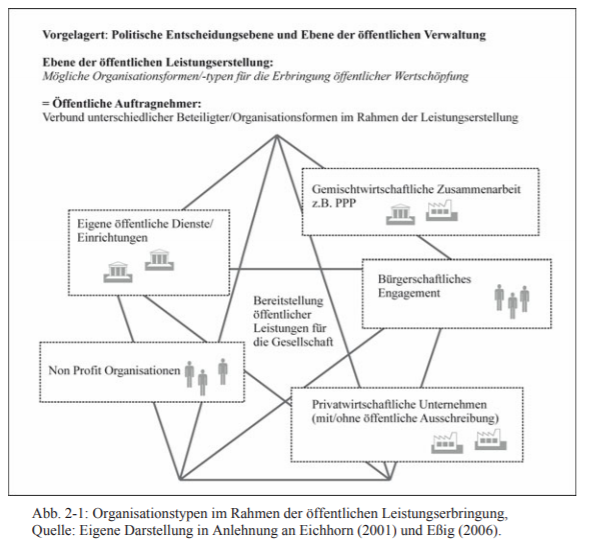
Distinction between public and private procurement
Public procurement is responsible for the supply of goods that are not produced by the company itself but are required for its own performance. The counterpart to this is “private-sector” procurement. Public procurement is characterized by the fact that the buyer belongs to the public sector or that goods and services are purchased for public requirements.
Procurement is generally responsible from a business and political point of view for the acquisition of certain resources that the respective administrative body needs to fulfil its public tasks or to pursue certain political objectives. If it is operated by the public sector, goods from external production are imported and not produced by the government itself, but are needed for the government’s own production. Because the buyer moves in the public sector, he also belongs to it. The total volume of public procurement in the European Union is around 1.5 trillion euros. [1]
Measures and requirements in favour of public procurement are increasingly being adapted to the competition directives of the European Union – the importance of purchased services continues to increase. The state assumes a kind of control function that pays attention to how services are provided in quantitative and qualitative terms.
In comparison to private value chains, public procurement leads to far more complex contractor-client or principal-agent relationships. With additional consideration of the expenditure volume of the public sector for value-adding activities, the question of a management approach for the control of the public value-added chain is literally posed. The aim is to also benefit from the experience of the private sector in the public sector, for example with the supply chain management approach for controlling cross-company value chains to achieve efficiency and effectiveness advantages.
In the sense of the guarantee concept, the public sector ensures the fulfilment of these politically desired public services for the citizen – i.e. it ensures that the services are provided according to politically determined, agreed standards. However, it can no longer be taken for granted that these services are also provided directly by the public sector itself. For the production and financing of these services, the public sector relies on alternative forms of organisation and financing in order to be able to offer or guarantee the politically desired services through cooperation and network structures with different public and non-state actors. [2]

 There are also private enterprises (type of organisation: private, profit-maximising enterprises) where the public authorities commission necessary goods, services and construction work (with or without public tender) for public value-adding activities. Also conceivable are private non-profit organisations (of the non-profit organisation type) which provide politically desired services in the sense of warranty tasks. Furthermore, in some cases the public sector falls back on the citizens themselves to provide public services, e.g. by providing start-up financing (type of organisation: civic involvement). Through civic engagement in a wide variety of forms, the citizen becomes an ‘administrative relief and responsibility-sharing performance enhancer’ and can be seen as the fifth ‘source of welfare production’ in the guarantee state. [2]
There are also private enterprises (type of organisation: private, profit-maximising enterprises) where the public authorities commission necessary goods, services and construction work (with or without public tender) for public value-adding activities. Also conceivable are private non-profit organisations (of the non-profit organisation type) which provide politically desired services in the sense of warranty tasks. Furthermore, in some cases the public sector falls back on the citizens themselves to provide public services, e.g. by providing start-up financing (type of organisation: civic involvement). Through civic engagement in a wide variety of forms, the citizen becomes an ‘administrative relief and responsibility-sharing performance enhancer’ and can be seen as the fifth ‘source of welfare production’ in the guarantee state. [2]
If one transfers the idea of the value chain to the production of public services, then a public value chain describes all value creation activities that must interact in order to produce and distribute a specific public service (= dynamic value creation), so that a desired social and policy-relevant additional benefit (added value, static value creation) is generated for the citizen or society.
List of sources
[1] Eßig, Michael (2008): Öffentliche Beschaffung: Bedeutung und Ansatzpunkte zur konzeptionellen Weiterentwicklung. In: Bundesverband Materialwirtschaft, Einkauf und Logistik (eds) Best Practice in Einkauf und Logistik. Gabler.
[2] Dorobek, Sandra (2013): Public Supply Chain Management. Steuerung öffentlicher Wertschöpfungsketten nach privatwirtschaftlichem Vorbild. Universität der Bundeswehr, Neubiberg bei München, Germany.

